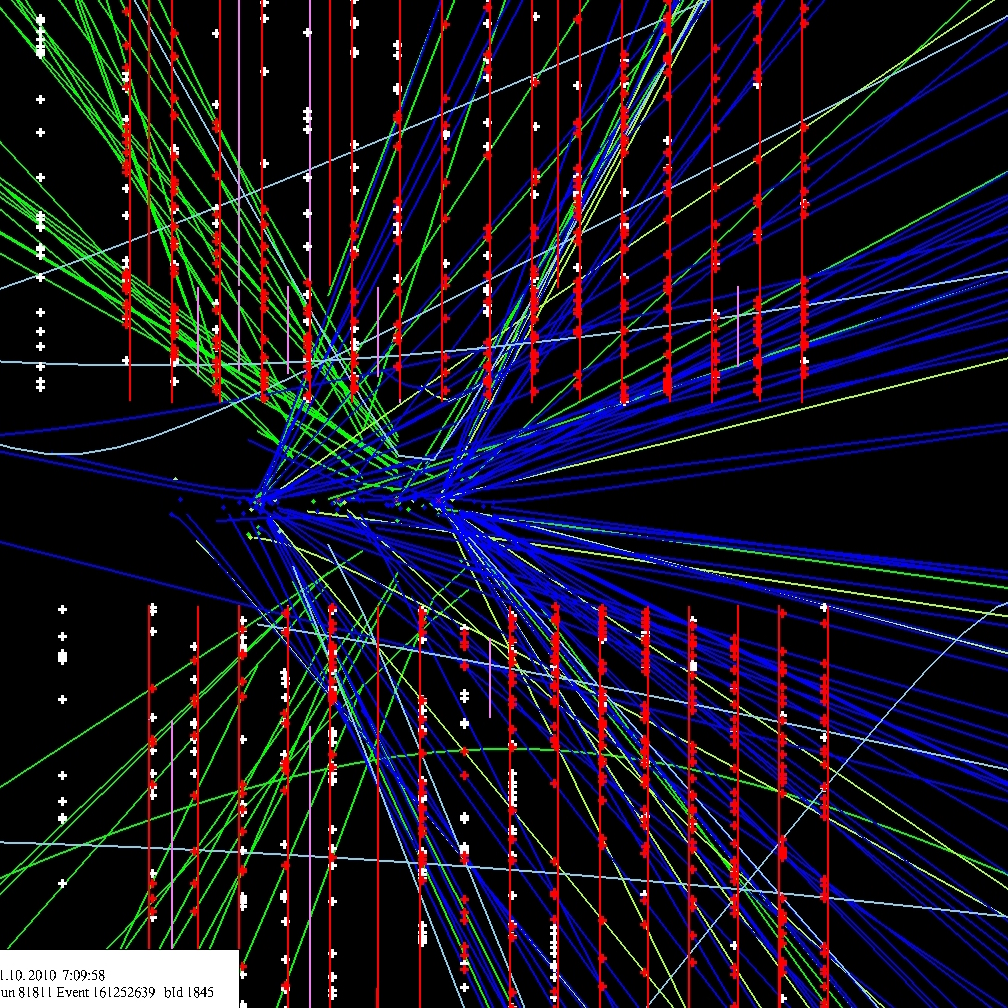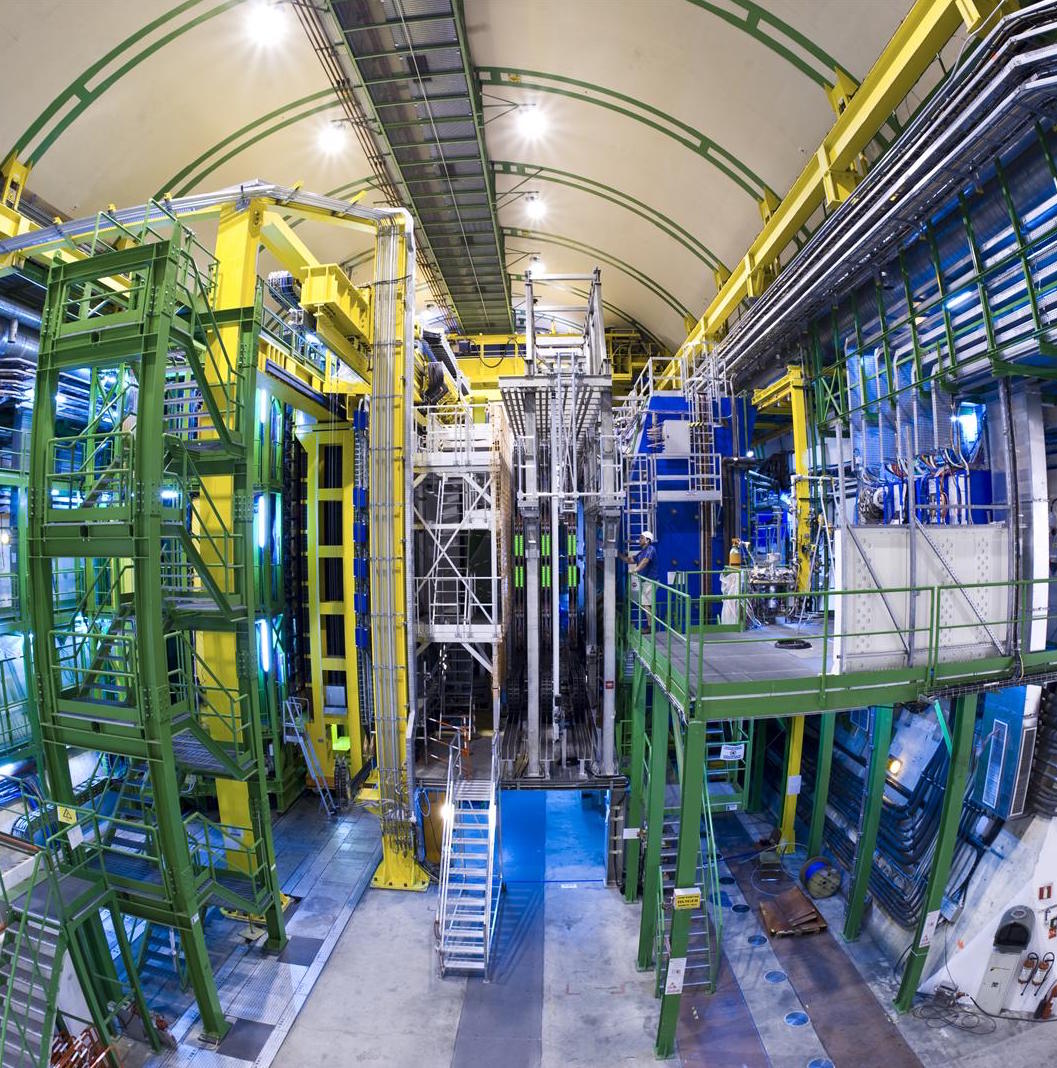Research
Looking for the New Physics that must be somewhere...
LHCb
LHCb was designed primarily to study CP violation, and to explore new physics through its contribution to B hadron decays. We've realised that LHCb is also sensitive to the many other physics processes that occur at LHC. LHCb is a general purpose detector instrumented in the forward region. This gives it access to a kinematic region that is unique and complementary to the other Large Hadron Collider experiments, and that makes its measurements exciting.
W and Z physics
My group and colleagues study W and Z boson reconstruction at LHCb. Our interest is in probing precisely predicted electroweak quantities, which are sensitive to New Physics contributions, and where previous experimental results show discrepancies. We have measured how often Z and W bosons are produced, tested lepton universality, and studied the Z boson couplings to extract a value for the Weinberg angle. Not only do some of these measurements provide some of the most sensitive tests of the electroweak Standard Model at the LHC, they can also constrain theory (parton density functions) in regions where it is not as well known.
In Run 2, we have the opportunity to probe the Standard Model at the highest energies yet. Our electroweak programme is ongoing, and extending to make precise measurements of top quark production. This will be the first time such measurements have been made in the forward region, and will allow us to test a different mixture of top production mechanisms to other experiments.
Heavy flavour and CEP physics
In parallel, members of my group perform precision studies of heavy flavour particle behaviour. New Physics processes can interfere with in some heavy flavour decays. An observation of any difference with respect to Standard Model predictions would be an extremely exciting discovery. The VELO particle detector we built at Liverpool is an integral part of this search.
Finally, we also probe the limits of the Standard Model at lower energies still, in exclusive production. Here low mass particles associated with New Physics processes can be easier to find, and this motivates our search.


